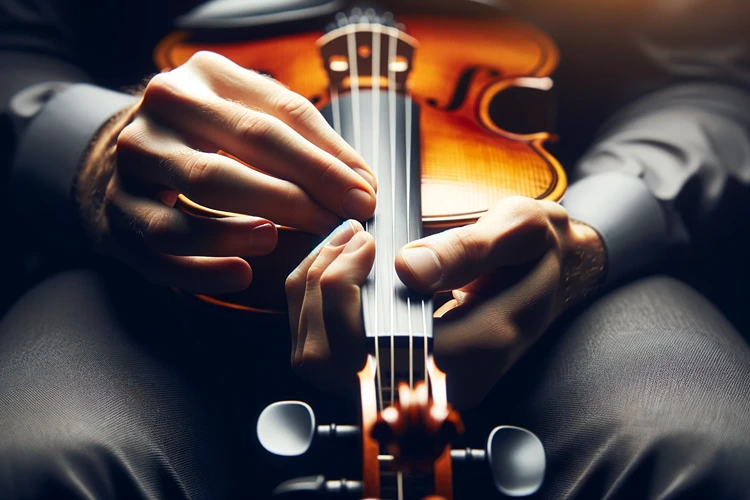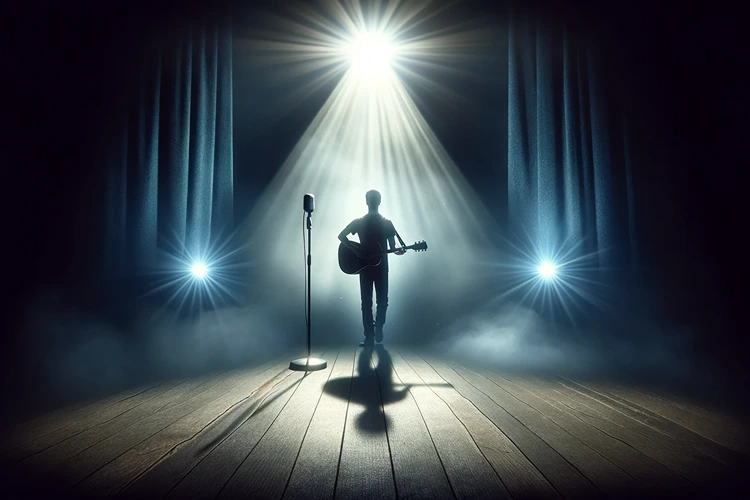Feeling butterflies before a performance? You’re not alone. Performance anxiety is a familiar foe for many musicians, from beginners to seasoned pros. It can turn a passion for music into a test of nerve. Yet, what if you could transform this nervous energy into a powerful performance ally? This article dives into practical tips for overcoming performance anxiety, tailored for musicians. Ready to take the stage with confidence?
What is a Performance Anxiety?
Performance anxiety, or stage fright, affects musicians at all levels. It’s the dread and anticipation of performing in front of others. Symptoms can range from mild nervousness to debilitating fear. But why does it happen? It’s our body’s natural response to perceived threats, dating back to ancient times. Understanding this can be the first step in managing it.
Strategies for Preparation

Preparation is your first line of defense against performance anxiety. It’s not just about practicing your pieces but preparing mentally and physically. Here’s how:
- Structured Practice: Create a practice schedule that covers all aspects of your performance, including technical skills, expression, and stage presence.
- Mental Rehearsal: Visualize your performance from start to finish. Imagine yourself succeeding and feeling confident.
- Physical Exercise: Regular physical activity can reduce stress levels and improve your overall well-being.
Helpful Hint:
Incorporate breathing exercises into your practice routine. Deep breathing not only helps with relaxation but also improves focus and stamina.
Embracing the Nerves
Instead of fighting the nerves, embrace them. Nervous energy can be channeled into your performance, adding excitement and dynamism. Recognize that a certain level of adrenaline is beneficial. It sharpens your senses and can enhance your musical expression.
Building a Performance Ritual
Developing a pre-performance ritual can significantly reduce anxiety. Whether it’s a specific warm-up routine, meditation, or listening to a particular song, find what works for you. This ritual can become a signal to your body and mind, indicating it’s time to perform.
Seeking Support and Resources
Remember, you’re not alone in this journey. Seek out support from teachers, peers, or professionals who understand the challenges of performance anxiety. Workshops, books, and online forums offer strategies and encouragement from those who’ve been in your shoes.
Stats:
Studies show that up to 75% of performers experience stage fright at some point in their careers. Knowing you’re part of a vast community can ease the sense of isolation that often accompanies anxiety.
Techniques for In-The-Moment Calming

Even with thorough preparation, nerves can peak right before or during a performance. Here are some in-the-moment strategies to help you calm down:
- Focused Breathing: Practice slow, deep breaths to lower your heart rate and calm your mind. Focus on the sensation of air filling your lungs and the calming effect it has on your body.
- Positive Self-Talk: Counter negative thoughts with positive affirmations. Remind yourself of your preparation and past successes. Phrases like “I am prepared” or “I can do this” can be powerful.
- Grounding Techniques: Engage your senses to stay present. Feel the weight of your instrument, listen to the sounds backstage, or focus on a specific object to ground yourself in the now.
Helpful Hint:
Keep a small object, like a stone or a piece of jewelry, in your pocket. Touching it can serve as a grounding technique to bring your focus back to the present moment.
Adjusting Your Perspective on Performance
How you view the performance itself can significantly impact your anxiety levels. Consider these adjustments to your perspective:
- It’s a Sharing Experience: Instead of seeing the performance as a test, view it as an opportunity to share something you love with others. This shift can reduce the pressure and make the experience more enjoyable.
- Feedback, Not Failure: Any mistakes or mishaps are opportunities for learning, not signs of failure. Embrace them as part of your growth as a musician.
- Connect With Your Audience: Remember that your audience is there to enjoy your performance, not to judge you. They’re on your side, cheering for your success.
Long-Term Strategies for Overcoming Anxiety
While immediate strategies are crucial, long-term approaches can help reduce the overall intensity of performance anxiety:
- Regular Performance Practice: The more you perform, the more comfortable you’ll become. Start small, with performances in front of friends or family, and gradually increase your audience size.
- Mindfulness and Meditation: Practices like mindfulness can improve your ability to stay present and calm under pressure. They teach you to observe your thoughts without judgment, reducing their impact over time.
- Professional Help: If anxiety significantly impacts your life and performance, consider seeking help from a therapist who specializes in performance anxiety. Cognitive-behavioral therapy (CBT) has been particularly effective.
Stats:
A study found that musicians who engaged in regular mindfulness practices experienced a 60% reduction in performance anxiety symptoms over a period of three months.
Creating a Supportive Community
Building a network of fellow musicians and supportive individuals can make a world of difference. Share experiences, tips, and encouragement. Knowing you’re not alone in your struggles can provide comfort and motivation to overcome performance anxiety together.
Embracing Technology for Practice and Performance
Incorporating technology can offer innovative ways to manage performance anxiety. Here are a few suggestions:
- Recording Practices: Regularly recording your practices and performances helps you become accustomed to the pressure of being “on.” Listening to recordings can also provide a constructive way to critique your performance and track your progress over time.
- Virtual Performances: With the rise of digital platforms, consider hosting live streams or virtual concerts. This can be a less intimidating way to perform for an audience and build your confidence in a controlled environment.
- Apps for Anxiety: Numerous apps are designed to help manage anxiety and improve mental health. Apps like Calm, Headspace, and others offer guided meditations, breathing exercises, and mindfulness practices tailored to reducing anxiety.
Nutrition, Sleep, and Physical Wellbeing
Your physical health has a significant impact on your mental state and can influence the severity of performance anxiety. Focus on:
- Healthy Nutrition: A balanced diet can help regulate mood and energy levels. Consider foods rich in Omega-3, antioxidants, and vitamins known to support brain health and reduce stress.
- Quality Sleep: Adequate sleep is crucial for managing stress and anxiety. Establish a regular sleep schedule and create a pre-sleep routine to improve sleep quality.
- Exercise: Regular physical activity releases endorphins, natural mood lifters that can also help alleviate anxiety. Even a short daily walk can make a difference.
Seeking Inspiration from Role Models
Many accomplished musicians have faced and overcome performance anxiety. Researching and learning about how your musical heroes dealt with stage fright can provide both comfort and practical strategies. Whether through interviews, biographies, or documentaries, these insights can be incredibly motivating.
FAQs
Bottom Line
Overcoming performance anxiety is a journey that looks different for every musician. It involves a combination of preparation, mindset shifts, physical health, and finding the right support system. By embracing these strategies and recognizing that you’re not alone in this struggle, you can begin to transform your performance anxiety into a source of strength and expression. Remember, the goal isn’t to eliminate anxiety completely but to learn to perform with it and let your passion for music shine through.
Additional Resources
- Musician Wellness: Dedicated to musician health and wellness, offering insights into physical and mental well-being for performers.
- Headspace: Though not musician-specific, Headspace offers guided meditations that can help with anxiety management, mindfulness, and stress reduction.
- Perform Confidently: This site provides courses and workshops designed to help musicians overcome anxiety and perform at their best.

